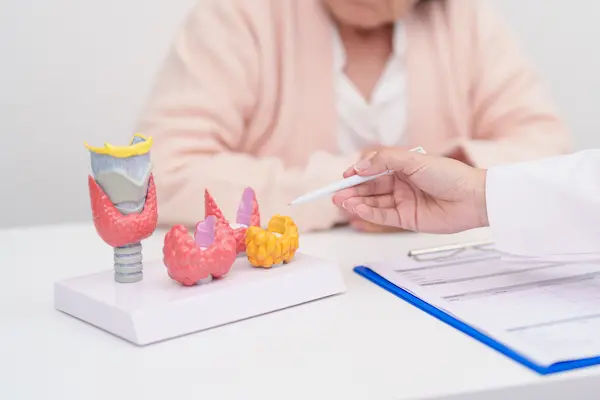- Female
- 30 Years
- 29/01/2025
I'm a little concerned about my wife's health. Her recent test results show a high TSH value of 17.32, and while she's been struggling with being overweight, she doesn't have any other issues. Should we be worried about this result, and what might it mean for her thyroid function?
Answered by 1 Apollo Doctors
A TSH value of 17.32 is significantly elevated, indicating hypothyroidism, a condition where the thyroid gland doesn't produce enough thyroid hormones; being overweight can be both a cause and a consequence of hypothyroidism;
Dr. Dhankecha Suggests...
Consult a Endocrinologist
Answered 04/07/2025
0
0

More Endocrinology Health Queries
View allI've just had an IUI treatment and I'm wondering what activities I should avoid afterwards. Are there specific things I should be doing instead? And how many days of rest are generally recommended? I'm feeling a bit uncertain and would love some guidance.
avoid intercourse for 2 days, and avoid junk foods
read more![Doctor 1]()
![Doctor 2]()
Answered by 1 Apollo Doctors
I'm trying to figure out which kind of doctor I should see for my thyroid issues. Should I book an appointment with an ENT specialist, or is there another type of doctor I should be consulting for this? I'm a bit unsure about the best approach.
consult to endocrinologist.
read more![Doctor 1]()
![Doctor 2]()
Answered by 1 Apollo Doctors
How should a diabetic patient regain their weight?
Regaining weight must be under dietician observation with balanced nutritious meals.
read more![Doctor 1]()
![Doctor 2]()
Answered by 1 Apollo Doctors
Disclaimer: Answers on Apollo 247 are not intended to replace your doctor advice. Always seek help of a professional doctor in case of an medical emergency or ailment.


